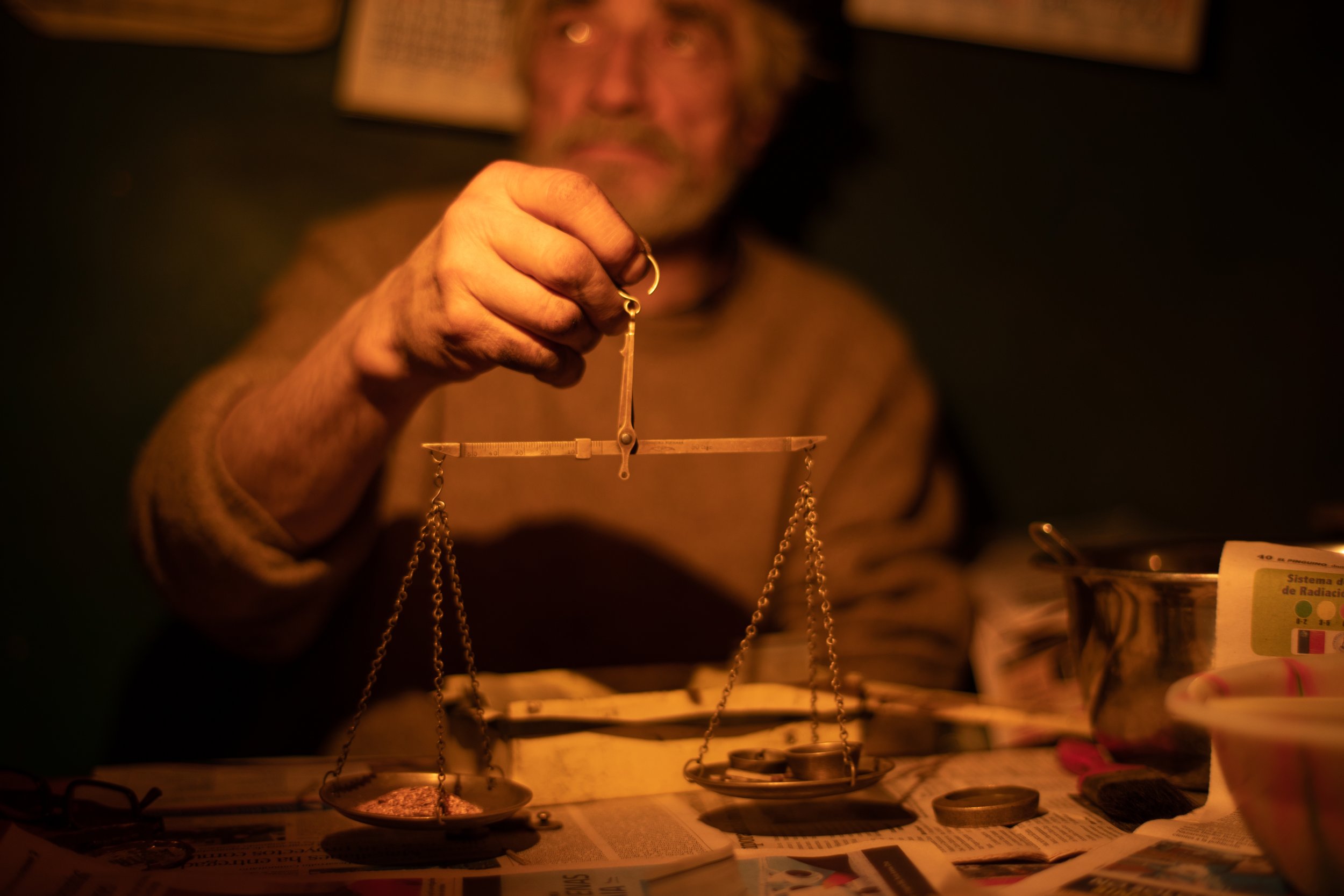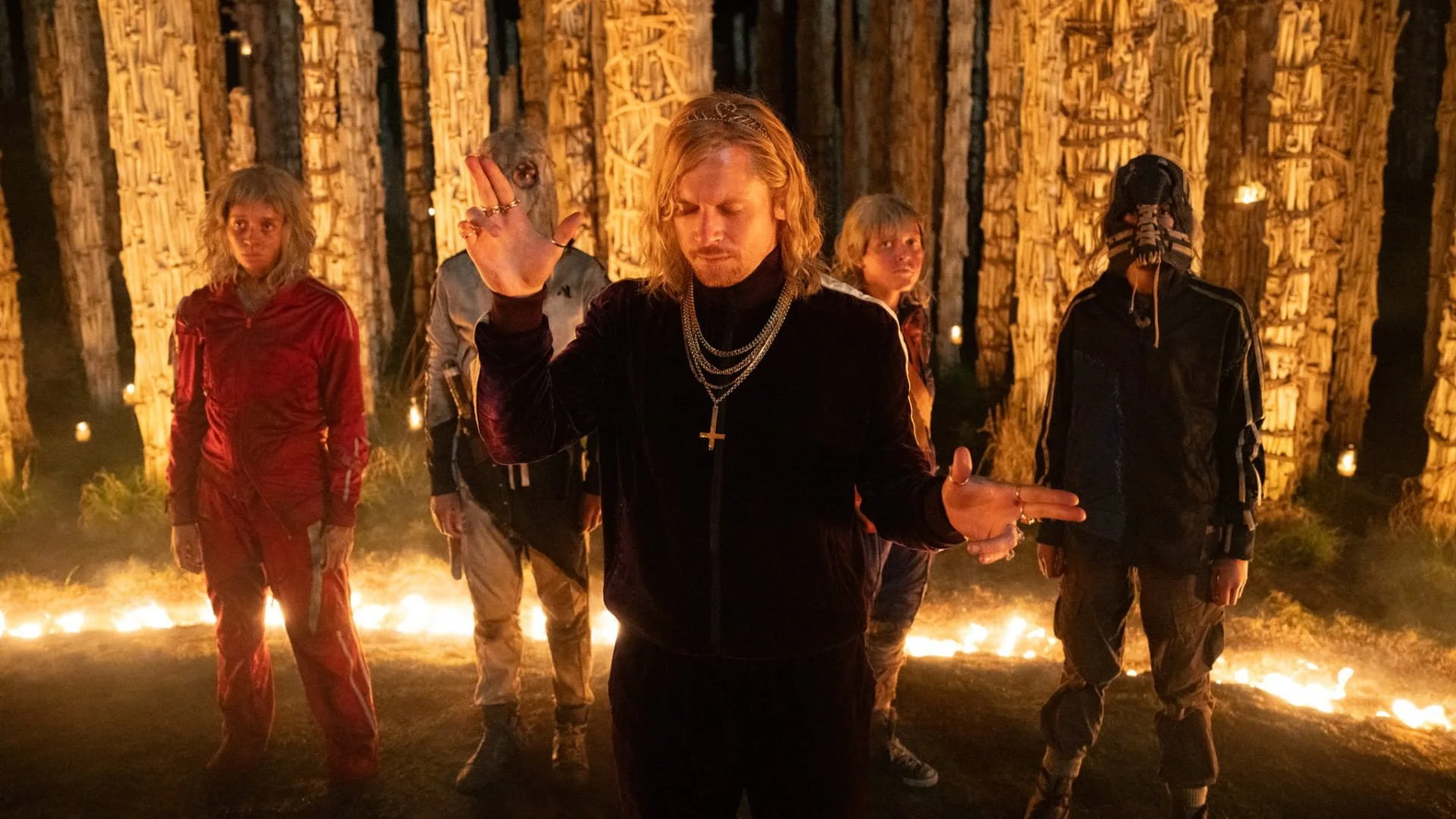Hot Docs 2024: The Fabulous Gold Harvesting Machine
Sometimes the juice isn’t worth the squeeze in documentary filmmaking. Such is the case with The Fabulous Gold Harvesting Machine, a doc about a father and son bond that promises razzle dazzle with its title, but fails to deliver. You’ve got to feel for director Alfredo Pourailly De La Plaza, though. He spent seven years working on this well-meaning project about a gold-mining father, Toto, in Chile’s Tierra del Fuego, and his clever son, Jorge, who constructs a gold-auging machine to ease the load on his father. It takes the son seven years to come up with a workable machine, so De La Plaza is left spinning his wheels and making use of all that footage of an old man hanging out in his decrepit shack and complaining about his various ailments.
The fact of the matter is that, even though it only runs 77 minutes, The Fabulous Gold Mining Machine does not justify feature length. There’s little payoff and the characters, although deeply human, aren’t the kind of people you want to spend over an hour with. There simply isn’t enough conflict or variation to keep our interest while Jorge slowly works on his machine. The most intriguing moment comes early on when Jorge designs the entire machine in MS paint. We assume the simplistic rendering is merely a prelude to a larger blueprint, but nope: the printed sheet of the MS paint document is the blueprint. The rest of the film never lives up to this kind of esoteric interest.
It might come down to the fact that we get to know the kind of people Toto and Jorge are within the first 10 minutes and the rest of the film never deviates from these early impressions. Toto is a hardscrabble man who works with his body, even as a recent head injury gives him unpredictable seizures that might be a death sentence when working in the cold Chilean countryside. One seizure when he’s alone might mean a fatal fall or a rock tumbling on him during his work. But he needs the money from the meagre gold he uncovers and so he continues on.
Jorge pleads with him to stop, but when he realizes his father will never stop, he sets out to make working obsolete by building the gold harvesting machine of the title. But it takes him forever to make the machine, and so Toto is left skeptical and bitter, mostly spending the film complaining about his ailments and using the camera as an outlet for his self-pity. It’s clear the film is a portrait of a father-son relationship at heart, not a procedural about gold extraction, but it’d be more interesting if it were the latter.
Unfortunately, De La Plaza is not all that interested in the machine itself or the process of mining gold. The film begs to be a procedural, but it’s not. Thus, the creation of the machine is never clear and we’re never truly shown whether it changes Toto and Jorge’s lives in the end. We just know it works and is finished, but refused some kind of revelation, or the kind of happily ever after that the movie begs for. Instead, it assumes familiarity and then success and then simply ends once it has the footage the filmmakers presumably waited seven years for, begging for something to cap off the narrative.
If the film’s focus was not going to be the creation of the machine, then I wish it spent more time exploring the landscape and culture of Tierra del Fuego. This southernmost region of Chile is a fascinating blend of remote coastal villages and windswept steppe, gauchos (South American cowboy) and rodeos and resilient people scraping together existence despite the elements. But these aspects only show up intermittently, occasional detours from the long scenes in Toto’s shed or in the gold stream or at the welding site outside Jorge’s home.
It’s hard to feel anything but admiration for a filmmaker who is this dedicated to his project, but there comes a point where you have to cut bait and accept the loss. Not every project is worthy of feature length, and not every human relationship justifies being the centre of a cinematic narrative.
4 out of 10
The Fabulous Gold Harvesting Machine (2024, Chile/The Netherlands)
Directed by Alfredo Pourailly De La Plaza.



This mockumentary starring Matt Johnson and Jay McCarrol is a complex metafiction farce and a loving portrait of friendship and Toronto.